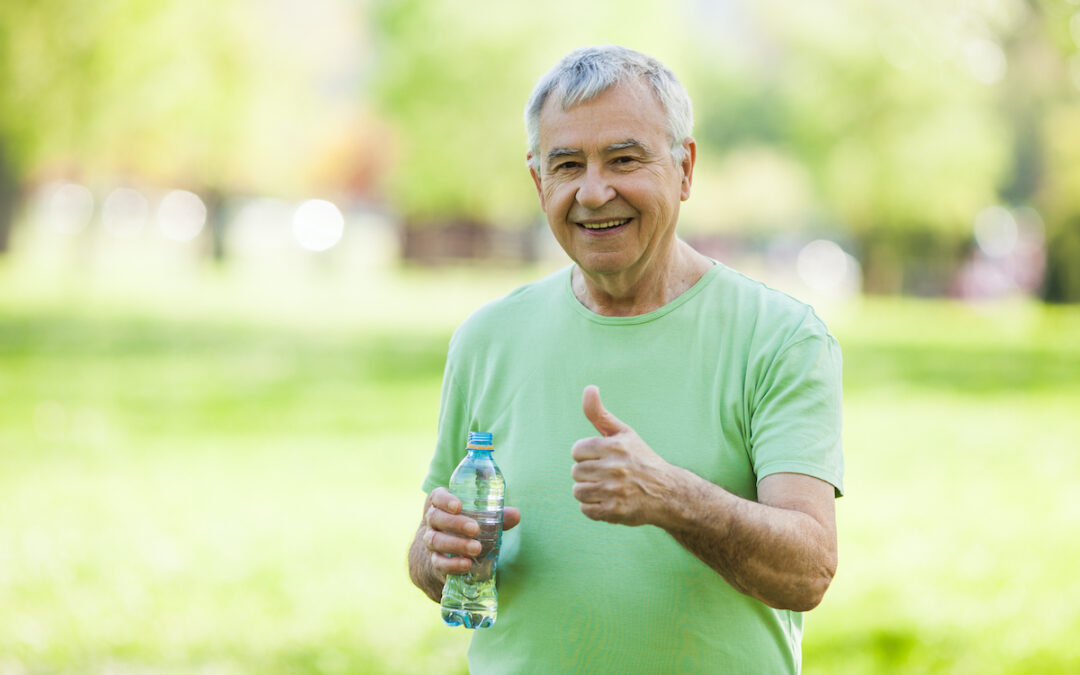Often when we hear the word nutrition, we think about the foods we eat. An essential part of nutrition is adequate hydration. Good hydration is critical for health and well-being, especially for seniors. The body is made up of approximately 60% water. The amount of water one should consume daily depends on multiple factors such as age, diagnosis, activity level, and medications, to name a few.
Seniors are among the most at risk for dehydration. Because of the potentially significant health consequences of dehydration to seniors, it’s important to recognize the causes and symptoms of dehydration as well as know how you can stay properly hydrated.
The top six benefits of good hydration for seniors:
- Increases energy and brain function: Even mild dehydration can result in changes in mood, concentration, headaches, memory, fatigue, and anxiety.
- Joint lubrication: The cartilage, located in joints and the spine’s disks, is made up of approximately 80% water. Lack of adequate hydration can lead to increased joint pain and muscle cramps.
- Water makes minerals and nutrients accessible: Minerals and nutrients dissolve in water, making it possible for them to reach different parts of the body.
- Kidney Function: Insufficient water intake can lead to kidney stones, urinary tract infections, and other kidney problems.
- Heart Health: Dehydration results in decreased blood volume, resulting in the heart working harder and faster to ensure the body has adequate oxygen.
- Digestive Health: Insufficient water intake can lead to digestive problems such as constipation and an overly acidic stomach. This increases the risk of heartburn and stomach ulcers.
What You Can Do
If you find that you frequently forget to drink or occasionally experience mild signs of dehydration like dry mouth, decreased urination, or fatigue, try following these tips to help you stay well hydrated:
- Don’t wait until you feel thirsty to drink water or other non-caffeinated liquids.
- Make it a habit when you leave home to fill a portable cup of water or take a water bottle with you.
- Take sips of water or other non-caffeinated beverages between bites at meals, such as juice or milk.
- Add liquids throughout your daily routine.
- Drink a full glass of water when taking medications.
- Don’t stop or reduce liquid consumption due to urinary control – consult your physician.
- Incorporate foods into your daily meals and snacks that are high in water content, such as melons (watermelon, honeydew, or cantaloupe), strawberries, pineapple, peaches, oranges, cucumbers, broccoli, bell peppers, celery, zucchini, and lettuce.
Senior Health and Wellness at Nye Health Services
At Nye Health Services, wellness is key in our approach to helping seniors thrive. Contact us today to learn more about the services we offer to help you and your loved one live happy!

